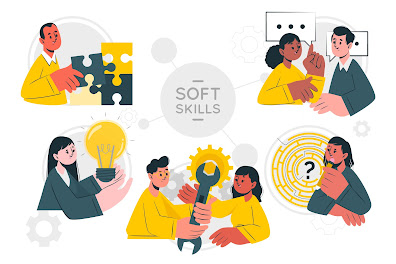The Crucial Role of Self-Assessment in Level 3 Certificate in Assessing Vocational Achievement
Introduction:
In the dynamic landscape of vocational education, the Level 3 Certificate in Assessing Vocational Achievement holds a pivotal role in shaping competent assessors. While traditional assessment methods play a significant part in evaluating learners' progress, the incorporation of self-assessment practices has sparked considerable debate. In this blog, we will delve into the importance of integrating self-assessment within the Level 3 Certificate program, exploring its benefits and addressing potential concerns.
Understanding Self-Assessment:
Self-assessment, in the context of vocational education, refers to a process where learners evaluate their own performance, identifying strengths and areas for improvement. It involves reflection on skills, knowledge, and behaviours relevant to the vocational field. The Level 3 Certificate in Assessing Vocational Achievement aims to produce assessors who not only gauge the performance of others but are also capable of introspection.
Benefits of Self-Assessment:
1. Empowering Learners:
Self-assessment empowers learners by fostering a sense of responsibility for their own progress. It encourages them to take an active role in their learning journey, leading to increased motivation and engagement.
2. Enhancing Critical Thinking:
Incorporating self-assessment promotes critical thinking skills. As learners evaluate their performance, they develop the ability to analyze and interpret information, ultimately honing their problem-solving skills.
3. Personalized Learning Experience:
Every learner is unique, with individual strengths and weaknesses. Self-assessment allows for a personalized learning experience, enabling learners to focus on areas that require improvement and further develop their strengths.
4. Building Metacognitive Skills:
Metacognition, or the awareness and understanding of one's own thought processes, is a crucial skill in any educational setting. Self-assessment contributes to the development of metacognitive skills, helping learners become more self-aware and effective in their learning approaches.
5. Preparation for Real-world Assessment:
In the professional realm, individuals are often required to evaluate their own performance. By integrating self-assessment within the Level 3 CAVA program, learners are better prepared for the demands of real-world assessment scenarios.
Addressing Concerns:
1. Validity and Reliability:
Critics argue that self-assessment may lack the validity and reliability of external assessments. However, when guided and structured effectively, self-assessment can provide valuable insights into learners' capabilities, complementing traditional assessment methods.
2. Bias and Overconfidence:
Another concern is the potential for learners to be biased or overly confident in their self-evaluations. To mitigate this, it is essential to provide clear criteria and guidance for self-assessment, promoting honest and realistic reflections.
3. Time Constraints:
Some educators worry that incorporating self-assessment may consume valuable instructional time. However, when integrated seamlessly into the learning process, self-assessment can enhance efficiency by promoting active engagement and reducing the need for extensive external evaluations.
Conclusion:
In conclusion, the incorporation of self-assessment practices within the Level 3 Certificate in Assessing Vocational Achievement is a topic that warrants careful consideration. The benefits of empowering learners, enhancing critical thinking, providing a personalized learning experience, building metacognitive skills, and preparing for real-world assessments make a compelling case for its integration.
While concerns about validity, reliability, bias, overconfidence, and time constraints should not be dismissed, they can be addressed through thoughtful planning, clear guidance, and ongoing support. By striking a balance between traditional assessments and self-assessment, the Level 3 Certificate program can better prepare assessors for the multifaceted challenges of the vocational education landscape, ensuring they not only evaluate others effectively but also reflect on and refine their own professional practice.

.jpg)


Comments
Post a Comment